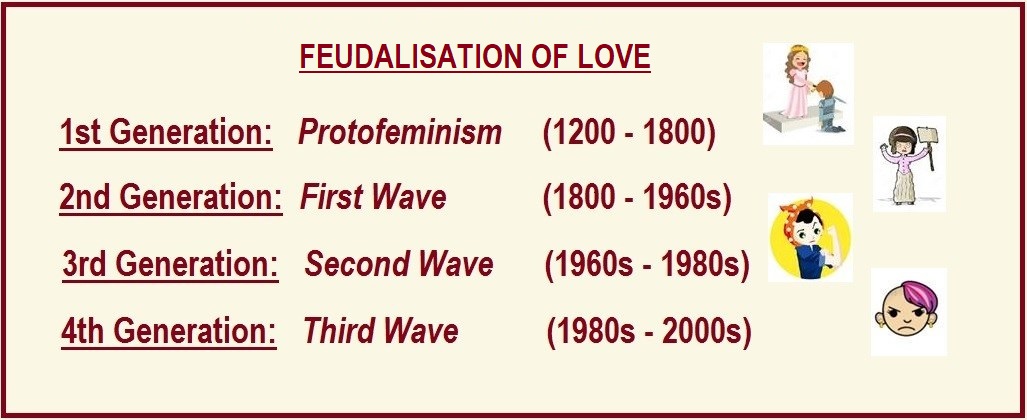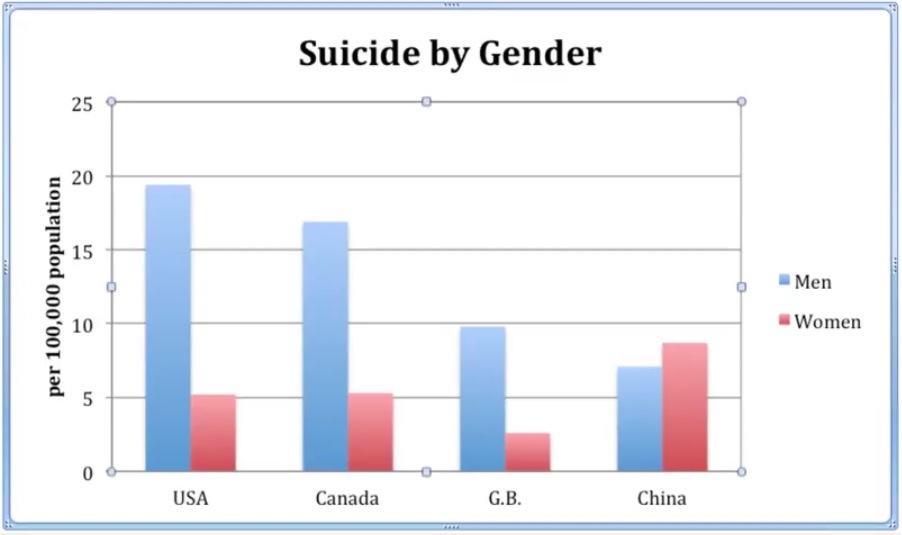The whole attitude of courtly love has been rightly described as ‘a feudalisation of love’. ~ C.S. Lewis
Both the liberal-feminist and traditional conservative ethos can be imagined as two heads growing from the same Hydra. What aim do these ideologies have in common? The answer to that question is beautifully captured by C.S. Lewis’ phrase “the feudalisation of love.”
According to Lewis, the feudalisation of love refers to the medieval event when the feudal contract employed between Lords & vassals was repurposed by noblewomen who believed the feudal contract could serve as a new model to govern relations between men and women. The idea was that a woman would assume the traditional role of Lord, and man her vassal symbolised in the iconic display of a man going down on one knee to offer service to her.
This effort in social engineering was wildly successful, and after a continuous process of cultural diffusion the formula now appears in most countries and governs most interactions between men and women, such has been its remarkable power to colonize. Today we refer to this model by the name of romantic love.
Lewis states that in comparison with the revolution generated by the feudalisation of love, the Renaissance amounts to a mere ripple on the surface of literature. It forms the internal rationale of post-industrial societies, along with the subsequent waves of feminism which embraced this concept with fervor, applying its principles more aggressively with each iteration of the movement.

.
Lewis gives us a precise date on the rise of love feudalism, claiming it appeared quite suddenly at the end of the eleventh century in France. He describes it as an elitist fad spreading to all the courts of Europe while subsequently permeating down the vertical axis to capture the imagination of lower classes as well. The spread was so thorough that the feudalisation of love is now regarded as a “timeless” and “natural” human arrangement, and is imagined as as a sacrosanct pillar of gender relations by layperson and academic alike.
Feudalisation of love is based on the principle male service to women. It leads to poor treatment of males, serving as root cause of the malignant outcomes tackled by men’s advocates. Among the catalogue of negative outcomes is male suicide — and yet even family members, friends and academics who have lost male loved ones to suicides remain leery about naming this lack of value directly: as caused by both the gynocentrism and misandry inherent to the feudalisation of love.
The only place where female suicide is higher is in rural China where women have lower social value than men. China is also the place where the feudalisation of love never took root because it was explicitly outlawed there by Mao during the cultural revolution, as it was viewed as a disintegrative culture product.

.
Outside certain parts of Asia most cultures are decidedly gynocentric, hyper-valuing women’s identity, needs and wants. While there’s many factors that can contribute to male suicide, if we were to address men’s devalued sense of self by removing the feudalisation of love, then the majority of these men wouldn’t suicide because they would be buoyed by that magic ingredient – value. This can only happen if we voice a full throated rejection of gynocentrism and a social revalorization of men and boys.
Those who adhere to the feudalisation of love script in their relationships, please don’t be surprised when it begins to hurt or when tragedy hits. In order to regain your sense of value you will need to divest yourself of it and, in the long run, find alternative models to live by.
__________________________